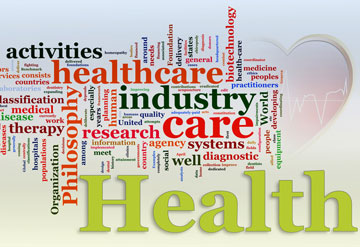This is an update on the July 11, 2016 blog “Study links Physician Burnout to EHR Data Entry.”
 In July 2016, our medical transcription company had reported on a study led by Mayo Clinic that linked physician burnout to electronic health record (EHR) data entry. The issue takes a new turn with a new study reporting that healthcare provider burnout negatively impacts patient care and safety. This update on our 2016 blog discusses the findings of the comprehensive meta-analytic review as reported by Medscape in January, 2017. The study was published online on October 26, 2016 in the Journal of General Internal Medicine.
In July 2016, our medical transcription company had reported on a study led by Mayo Clinic that linked physician burnout to electronic health record (EHR) data entry. The issue takes a new turn with a new study reporting that healthcare provider burnout negatively impacts patient care and safety. This update on our 2016 blog discusses the findings of the comprehensive meta-analytic review as reported by Medscape in January, 2017. The study was published online on October 26, 2016 in the Journal of General Internal Medicine.
In October 2016, a panelist in a Medscape roundtable discussing EHRs and burnout said, “If (EHR requirements are) implemented without a change in the workflow in the office, too much data entry falls on the physician. That is what is adding to the huge burden.” Accordingly, this blog also discusses the role that medical transcription services play in reducing physician burnout and improving care.
The meta-analytic review conducted by the Department of Psychology, Indiana University-Purdue University Indianapolis found a consistent association between higher levels of provider burnout and lower levels of both quality and safety. This relationship was evident across all disciplines. The researchers analyzed 102 studies with 82 unique samples comprising a total of 210,669 healthcare providers from 32 countries on 6 continents. The highlights of the global meta-analytic review are as follows:
- Nearly 20% of the studies applied a global measurement of burnout, with emotional exhaustion being the most commonly assessed domain.
- The research focused on quality as well as assessment of safety.
- Nurses were evaluated more than any other health professional group.
- Overall, the study found there was a significant and moderate effect of burnout on the quality of care.
- Emotional exhaustion had the worst impact on the quality of care, although depersonalization and reduced personal accomplishment were also independently linked to considerably lower quality outcomes.
- Burnout was associated with a significant negative overall effect on safety.
- Burnout was more strongly associated with provider perceptions of safety lapses vs actual events.
- Burnout among nurses was particularly linked to worse safety outcomes.
- Burnout was more strongly associated with safety concerns in Europe compared with North America.
The team noted that given the high rate of burnout among physicians, their findings could have important ramifications.
 According to Medscape’s Annual Lifestyle Report, physician burnout is not only highly prevalent, but it is increasing. In 2015, the overall rate of physician burnout was 46%, higher by more than 15% compared to the previous survey in 2013. Critical care and emergency medicine physicians reported the highest rates of burnout, followed by family physicians, internists, and general surgeons and radiologists. Rates of burnout were comparatively lower among psychiatrists and dermatologists.
According to Medscape’s Annual Lifestyle Report, physician burnout is not only highly prevalent, but it is increasing. In 2015, the overall rate of physician burnout was 46%, higher by more than 15% compared to the previous survey in 2013. Critical care and emergency medicine physicians reported the highest rates of burnout, followed by family physicians, internists, and general surgeons and radiologists. Rates of burnout were comparatively lower among psychiatrists and dermatologists.
Medical transcription outsourcing can reduce physician burnout significantly by getting physicians out of data entry. Today, EHR-integrated clinical documentation support is available. Skilled transcriptionists convert physician dictation into accurate EHR notes in custom turnaround time. They provide customized transcription support for all medical specialties. They also adhere to HIPAA and regulatory rules so that physicians do not have to worry about maintaining the safety and confidentiality of patient records. In fact, the Association for Healthcare Documentation Integrity (AHDI) recommends including wording that expands the definition of “non-physician members of the care team” to include certified healthcare documentation specialists and certified medical transcriptionists. With certified documentation and transcription specialists on their team, healthcare providers can minimize burnout caused by EHR data entry, ensure accuracy, and prevent inconsistencies that may compromise patient health and safety.


